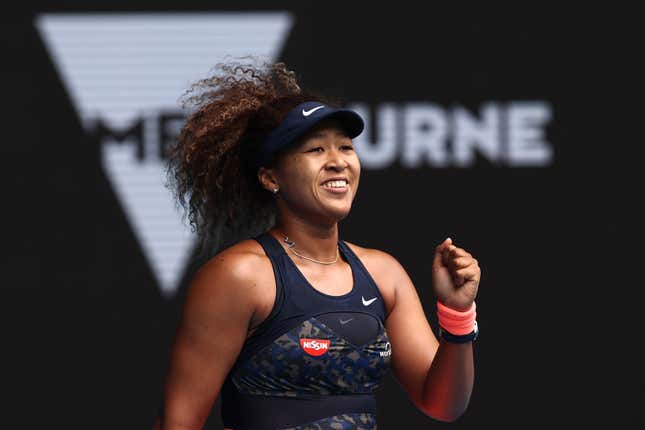
Not all heroes wear capes, but they may develop apps.
In light of the ongoing Naomi Osaka saga, in which the four-time Grand Slam champ withdrew from the French Open after she was fined for declining to participate in media interviews, much has been said about mental health and how fiercely it should be protected—both in and outside of the workplace.
But instead of waiting for tournament officials to reach a compromise and do right by the highest-paid female athlete in the world—who also just so happens to be the second-highest-ranking woman in the sport—mindfulness app Calm has leaped into the fray and is offering a solution.
“Mental health is health,” the company announced on Twitter. “To support Naomi Osaka’s decision to prioritize her mental health, Calm is donating $15,000 to @LaureusSport in France, an organization doing incredible work in the mental health space to transform the lives of young people through the power of sport.”
In a subsequent tweet, Calm continued: “But this is bigger than any individual player. Calm will also pay the fine for players opting out of 2021 Grand Slam media appearances for mental health reasons, and we will match the fine with a $15,000 donation to @LaureusSport.”
Well, damn.
Osaka drew the ire of tournament officials when she skipped a news conference out of her concern for her mental health following her match with 63rd-ranked Patricia Maria Tig in the opening round of the French Open. She was assessed a $15,000 fine for doing so, and after being threatened with further sanctions should her media blackout continue, Osaka withdrew from the tournament entirely as not to become “a distraction.”
In the aftermath of all this, peers such as Serena Williams and Steph Curry have publicly lent their support. However, in a column for The Atlantic, Jemele Hill provided a bit of context into Osaka’s media obligations and the responsibilities of the journalists that the 23-year-old has cited as a constant source of anxiety:
As a sportswriter for more than 20 years, I have attended many of the postgame news conferences that so unsettle Osaka. These sessions help journalists and fans understand what we’ve just witnessed and why individual athletes defied expectations or failed to rise to the occasion. They also help humanize athletes whose personalities might not always come through in game footage alone. But even for seasoned journalists, the experience can be awkward. Most of us would prefer to conduct private interviews with athletes, but logistically that’s not feasible. Even if athletes could spend one-on-one time with several different news outlets, they would be subjected to a lot of the same questions. Still, the reliance on press conferences means that journalists often have to ask intrusive questions in front of a crowd.
Hill then goes on to explain that considering how widely clips can be circulated if an athlete goes viral for saying something profound, inflammatory, or otherwise controversial, press conferences also serve as a lucrative source of income. So by refusing to participate, Osaka is not only refusing to help promote a product, but she’s hurting the tournament’s bottom line.
Press conferences are more crucial for journalists who report on tennis than those who report on other sports. In the NBA, the NFL, the WNBA, Major League Baseball, and the NHL, players speak with the press almost daily during their respective seasons. Tennis players, by contrast, are generally unavailable outside of tournaments. The game, although popular in America, is covered with greater intensity overseas. These factors can result in aggressive questioning of athletes during press conferences. (Although press conferences have a function in the news-gathering process, leagues have also been able to turn access to players into an additional source of revenue. Notice how many different brands and companies are on the banners behind professional athletes when they speak with the press. That placement isn’t free.)
Before social media became prominent, athletes were at the mercy of the media to help tell their stories and mold their public image. But now that Osaka and others can speak directly to the public through their Twitter or Instagram accounts, the power dynamic between journalists, sports organizations, and professional athletes has shifted considerably.
Hopefully, this ordeal concludes favorably. But in the interim, Osaka’s mental health and ability to resume her career without compromising her emotional well-being remains our primary concern.